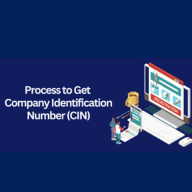Hidden Costs of Running a Small Business

Finance & Accounting
85 week ago — 11 min read
Running a small business can be a fulfilling and rewarding experience. However, it can also come with a variety of hidden costs that can impact your bottom line. While most business owners are aware of typical expenses such as rent, salaries, and inventory, there are many other costs that may go unnoticed.
Licenses and Permits
Running a small business in India requires various licenses and permits. Depending on the nature of your business, you may need to obtain multiple licenses from different authorities. These licenses and permits come with a cost, which can add up over time. Additionally, failing to obtain the required licenses and permits can result in fines and penalties, which can be even more expensive.
To manage these costs, make sure you research and understand the licensing requirements for your business before starting. Keep track of the expiration dates of your licenses and renew them on time to avoid any fines or penalties.
Legal Fees
Legal fees are another hidden cost of running a small business in India. From drafting contracts to dealing with legal disputes, businesses may require legal assistance from time to time. Hiring a lawyer can be expensive, and even a small legal issue can quickly become costly.
To manage legal fees, consider hiring a lawyer on retainer or using legal service providers that offer affordable packages. You can also take preventive measures such as having clearly defined contracts and policies to avoid any legal disputes.
Employee Turnover is Hidden Costs of Running a Small Business
Employee turnover is an often-overlooked cost of running a small business. Hiring and training new employees can be time-consuming and expensive. Additionally, high turnover rates can lead to decreased productivity and morale, which can impact the bottom line.
To manage employee turnover costs, invest in employee retention strategies such as competitive salaries, benefits, and a positive work environment. Conduct exit interviews to understand why employees are leaving and take steps to address any issues.
Marketing and Advertising
Marketing and advertising are essential for any small business to attract new customers and increase sales. However, these costs can add up quickly, especially for businesses with a limited marketing budget.
To manage marketing and advertising costs, focus on cost-effective strategies such as social media marketing, email marketing, and search engine optimisation. You can also collaborate with other businesses or influencers to reach a wider audience.
Insurance is Hidden Costs of Running a Small Business
Insurance is a necessary expense for any small business. However, the cost of insurance can vary based on the type of coverage and the size of your business. Insurance premiums can add up over time and impact your bottom line.
To manage insurance costs, compare different insurance providers to find the best coverage at the most affordable price. Consider bundling different types of coverage to save money.
Payment Processing Fees
Payment processing fees are a Costs of Running a Small Business may overlook. Payment processors charge a fee for each transaction, which can add up over time. Additionally, some processors may charge hidden fees such as chargeback fees or monthly fees.
To manage payment processing fees, compare different payment processors to find the most affordable option. Some payment processors may also offer volume discounts or reduced fees for businesses that process a large volume of transactions. It’s also important to read the terms and conditions carefully to avoid any hidden fees.
Taxes and Accounting
Taxes and accounting are essential aspects of Costs of Running a Small Business in India. However, managing taxes and accounting can be a complex and time-consuming task. Hiring an accountant can be expensive, but failing to properly manage your taxes and accounting can result in fines and penalties.
To manage tax and accounting costs, consider using accounting software that can automate many of the tasks. Keep track of all expenses and revenue to ensure accurate tax filing. Consult with a tax professional to ensure compliance with all tax regulations.
Energy Costs of Running a Small Business
Energy is a hidden cost of running a small business. From electricity to water, the cost of utilities can add up over time. Additionally, inefficient use of energy can result in higher costs.
To manage energy costs, invest in energy-efficient equipment and appliances. Consider implementing energy-saving practices such as turning off lights and equipment when not in use. Conduct an energy audit to identify any areas for improvement.
Unplanned Expenses
Unplanned expenses are a reality for any small business. From unexpected repairs to emergency situations, these expenses can impact your bottom line. Failing to plan for these expenses can result in financial hardship.
To manage unplanned expenses, create a contingency fund for emergencies. Keep track of all expenses and revenue to ensure you have a clear understanding of your financial situation. Consider taking out a small business loan or line of credit to cover unexpected expenses.
Surety Bonds
Government agencies often require surety bonds in various industries, especially those that provide services to consumers. These regulations are in place to prevent unqualified professionals from entering certain markets and to discourage unethical business practices.
However, many new business owners may not be aware of the requirement for a surety bond until they are in the midst of the licensing process. When applying for a bond, these business owners may discover that they need to pay a premium, which can range from ₹7,000 to ₹1,40,000 or more.
Note – The actual cost of the surety bond will depend on the amount of coverage needed by the business and the owner(s) credit score.
Technology Costs
Starting and running a small business comes with many hidden costs that can erode your bottom line if you aren’t careful. One of the hidden costs of running a small business is technology costs.
Here are some of the technology costs that small business owners should be aware of:
-
Upfront Technology Costs
No matter what line of business you’re in, chances are that you’re going to have to pay for a decent amount of upfront technology costs. For example, you might need computers, cell phones, and custom data entry software.
-
Ongoing Technology Costs
Technological costs have to be added for each new employee who will work for the company. This includes the cost of computers, software licenses, and other technology-related expenses.
-
Maintenance and Upgrades
Equipment, maintenance, and upgrades are also significant technology costs for small businesses. This includes the cost of repairing or replacing equipment, as well as the cost of upgrading software and hardware.
-
Cybersecurity
Small businesses are vulnerable to cyber attacks, and the cost of cybersecurity can be significant. This includes the cost of firewalls, antivirus software, and employee training.
-
Website development and maintenance
If your business has a website, you must pay for website development and maintenance. This includes the cost of designing and building the website, as well as the cost of ongoing maintenance and updates.
Conclusion
Costs of running a Small Business can be a rewarding experience, but it also comes with many hidden costs. By understanding and managing these costs, you can maximize your profits and achieve long-term success. From licenses and permits to unplanned expenses, it’s important to stay informed and plan ahead to avoid any financial hardship. By taking a proactive approach to managing costs, you can ensure the long-term success of your small business.
FAQs
What are examples of hidden cost in business?
Hidden costs in business are unexpected expenses that may not be easily noticed. They can include unexpected repairs, employee turnover costs, government fees, or disruptions in the supply chain.
What is the best budgeting method for small business?
To plan a budget for a small business, you can start from scratch each time (zero-based budgeting), gradually adjust from the previous year (incremental budgeting), or create a budget based on activities and tasks (activity-based budgeting). Choose a method that fits your business's goals and finances.
What are some business strategies to minimize cost?
Businesses can reduce costs by working efficiently, negotiating better contracts with suppliers, using cost-effective technology, reducing waste and energy usage, and outsourcing non-core tasks. Focus on continuous improvement and eliminating unnecessary expenses.
What are hidden unforeseen costs?
Hidden Costs of Running a Small Business are unexpected expenses that arise while running a business. They can include emergency repairs, legal fees, market changes, or sudden increases in operating expenses.
What is the difference between necessary and unnecessary expenses?
Necessary expenses are essential for running a business. They include expenses like rent, utilities, employee salaries, and production materials. Unnecessary expenses are avoidable costs not related to the core operations or goals of the business. Examples include spending too much on entertainment or luxury items. Managing costs and increasing profitability involves distinguishing between necessary and unnecessary expenses.
Also read: Are You Allocating Your Investments Wisely As an SME?
To explore business opportunities, link with me by clicking on the 'Connect' button on my eBiz Card.
Image source: Canva
Disclaimer: The views and opinions expressed in this article are those of the author and do not necessarily reflect the views, official policy or position of GlobalLinker.
Posted by
Vakilsearch StaffGreetings! We would love to work with you and your company. We look forward to connecting with business houses and MSME's.
View Vakilsearch 's profile
Other articles written by Vakilsearch Staff
Know About the 4 Types of Partnership Firms
42 week ago
Most read this week













Comments
Share this content
Please login or Register to join the discussion